Table of Contents

Mpox, formerly referred to as monkeypox, is a viral illness caused by the monkeypox virus (MPXV). With the recent spread of this illness, especially outside historically endemic regions, it’s crucial to understand how it spreads, the symptoms it causes and how nutrition and lifestyle can play a significant role in managing the virus. This blog provides an in-depth look at this virus and the nutritional strategies that can support recovery and strengthen immunity.
What is Mpox?
Mpox is a zoonotic viral infection, which means it can be transmitted from animals to humans. The monkeypox virus is primarily transmitted through close contact with infected individuals, animals or contaminated materials. The virus can also spread through respiratory droplets during prolonged face-to-face contact, making it a concern in crowded environments.
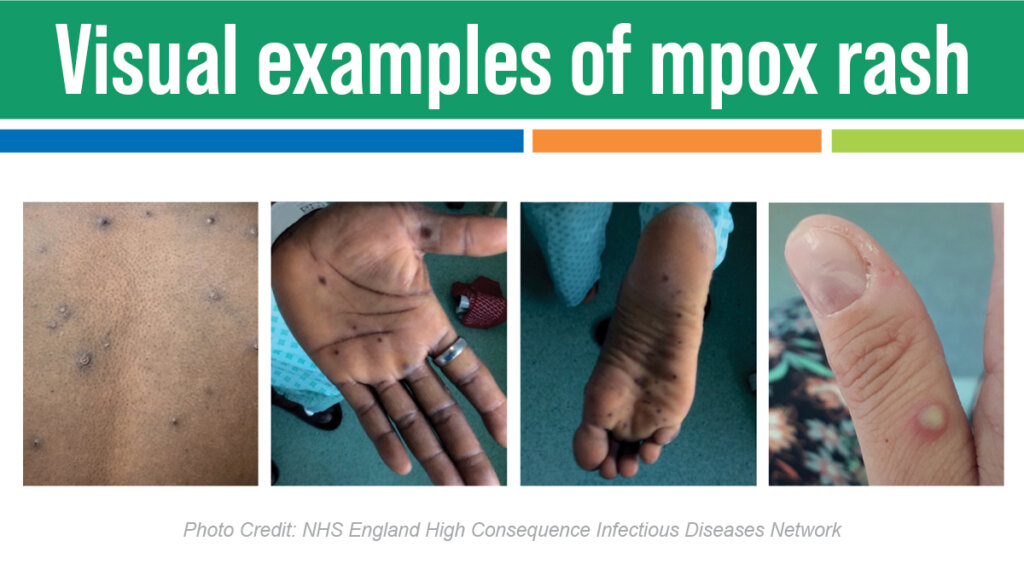
Mpox: Who is at Risk?
It can affect anyone who comes into close contact with an infected person or contaminated materials. People with weakened immune systems, including individuals with untreated or advanced HIV, young children, and the elderly, are at higher risk for severe disease and complications. Those living in outbreak regions, healthcare workers, and caregivers are also more vulnerable to infection.
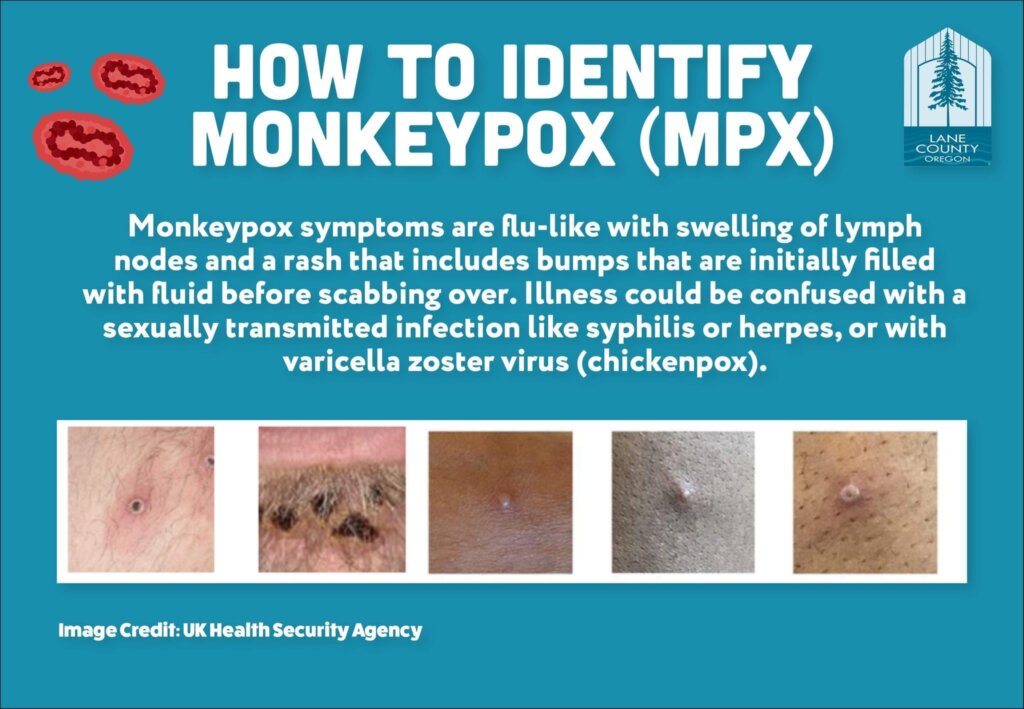
Symptoms of Mpox
Symptoms are typically appear within 1 to 21 days after exposure and last 2 to 4 weeks.
The most common symptoms include:
- Rash (which often starts on the face and spreads to other parts of the body)
- Fever
- Sore throat
- Headache
- Muscle and back pain
- Swollen lymph nodes
- Fatigue and low energy
The rash associated with this viral infection progresses into blisters or sores that may be painful or itchy. While many individuals recover within weeks, those with weakened immune systems may experience more severe symptoms or complications.

How Nutrition Plays a Role in Mpox Recovery?
As a dietitian, you can provide valuable support in managing mpox symptoms and aiding recovery by promoting a nutrient-dense diet. A healthy diet can strengthen the immune system, reduce inflammation, and help the body heal more efficiently. Below are key nutritional strategies to consider:
1. Boosting Immune Function
A strong immune system is essential for fighting off infections like mpox.
Encourage patients to consume foods rich in immune-boosting nutrients such as:
- Vitamin C: Found in citrus fruits, bell peppers, strawberries, and broccoli, vitamin C supports the immune system and aids in tissue repair.
- Vitamin A: Sweet potatoes, carrots, and spinach are excellent sources of vitamin A, which helps maintain skin integrity and boosts the immune response.
- Zinc: Zinc is crucial for immune health and wound healing. Good sources include nuts, seeds, legumes and whole grains.

2. High-Quality Protein for Healing
Protein is essential for tissue repair and immune cell production. During an illness like mpox, the body’s demand for protein increases to repair damaged skin and support immune responses.
Sources of high-quality protein include:
- Lean meats (chicken, turkey)
- Fish (rich in omega-3 fatty acids, which reduce inflammation)
- Plant-based proteins like beans, lentils, and tofu
- Dairy products, which also provide calcium for bone health
3. Hydration for Fever and Rash Management
Fever and skin rashes can lead to fluid loss, making hydration a critical aspect of recovery. Encourage patients to drink plenty of water, herbal teas, and electrolyte-rich fluids, especially if they have a fever. Hydration supports skin healing and keeps the body functioning optimally.
4. Anti-Inflammatory Foods
Chronic inflammation can delay healing and worsen symptoms. A diet rich in anti-inflammatory foods can help the body recover faster from mpox.
These include:
- Omega-3 fatty acids: Found in fatty fish like salmon, flaxseeds, and chia seeds, omega-3s reduce inflammation and support immune health.
- Fruits and vegetables: Berries, leafy greens, and cruciferous vegetables like broccoli and cauliflower are packed with antioxidants that combat inflammation.
- Turmeric: Known for its anti-inflammatory properties and acts as functional foods, turmeric can be added to meals or taken as a supplement.
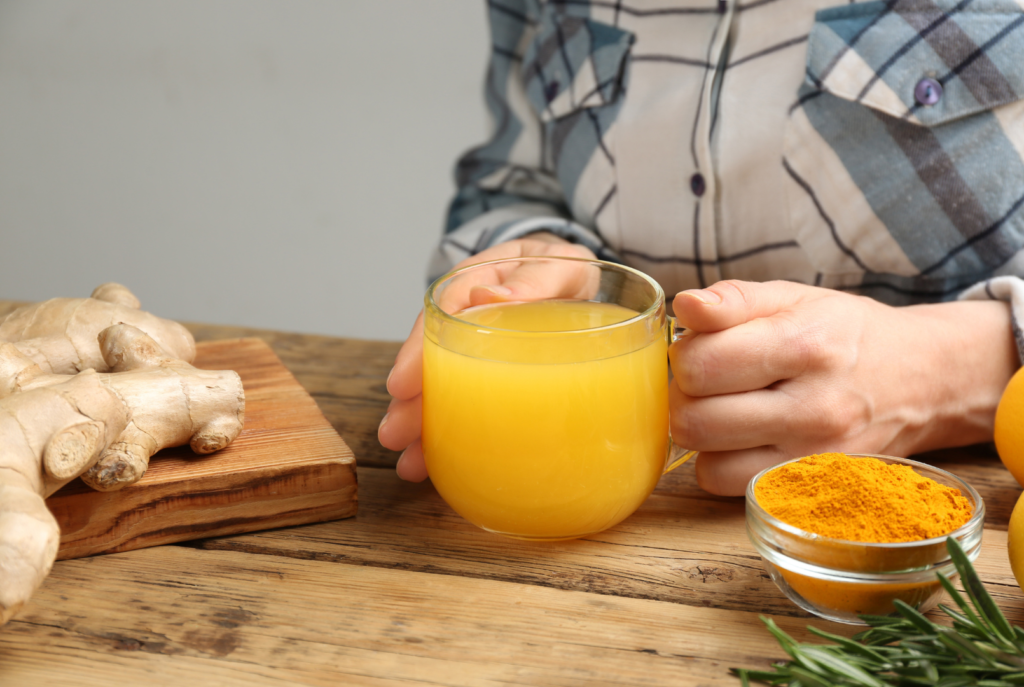
5. Probiotics for Gut Health
A healthy gut supports the immune system, which is especially important during illness. Probiotics found in yogurt, kefir, sauerkraut, and other fermented foods help maintain a balanced gut microbiome, which can enhance immune responses.
6. Vitamin D for Immune Support
Vitamin D is essential for immune function, and many people are deficient in this nutrient. Encourage patients to consume vitamin D-rich foods like fortified dairy products, eggs, and fatty fish. Vitamin D supplements may also be considered, especially in areas with limited sunlight exposure.
Managing Mpox Symptoms: A Nutritional Approach
In addition to following standard treatment guidelines, such as isolation and medication, nutrition can play a pivotal role in managing symptoms and supporting recovery.
Here’s how:
- Support Skin Health: Encourage patients to consume foods rich in vitamins A, C, and E, which are essential for skin repair and collagen production. These nutrients help speed up the healing of sores and reduce scarring.
- Energy Boost: Fatigue is a common symptom of mpox. A diet rich in complex carbohydrates (whole grains, legumes, vegetables) and healthy fats (avocados, nuts) can provide sustained energy without spiking blood sugar levels.
- Pain Management: Certain foods like ginger and turmeric have natural pain-relieving properties and can be incorporated into meals to reduce discomfort from rashes and muscle aches.
Preventing the Spread of Mpox
To prevent the spread of this virus, those infected should isolate themselves, follow proper hygiene protocols, and avoid close contact with others until they are no longer contagious. To reduce the risk of transmission, consider these practical measures:
- Self-Isolation: Infected individuals should stay in a separate room, open windows for ventilation, and avoid sharing items like towels and bedding.
- Hand Hygiene: Frequent handwashing with soap and water or using hand sanitizer is essential to prevent the spread of the virus.
- Cover Lesions: If possible, keep sores uncovered but avoid touching them. Wearing a mask and covering lesions when around others can help reduce the risk of transmission.
The Role of Vaccination in Mpox Prevention
Vaccination can help prevent this viral infection, particularly in individuals at high risk of exposure, such as healthcare workers and people in outbreak areas. Pre-exposure prophylaxis (PrEP) with the mpox vaccine is recommended during outbreaks. It’s essential for individuals at risk to stay informed about vaccination availability and follow local health authority guidelines.
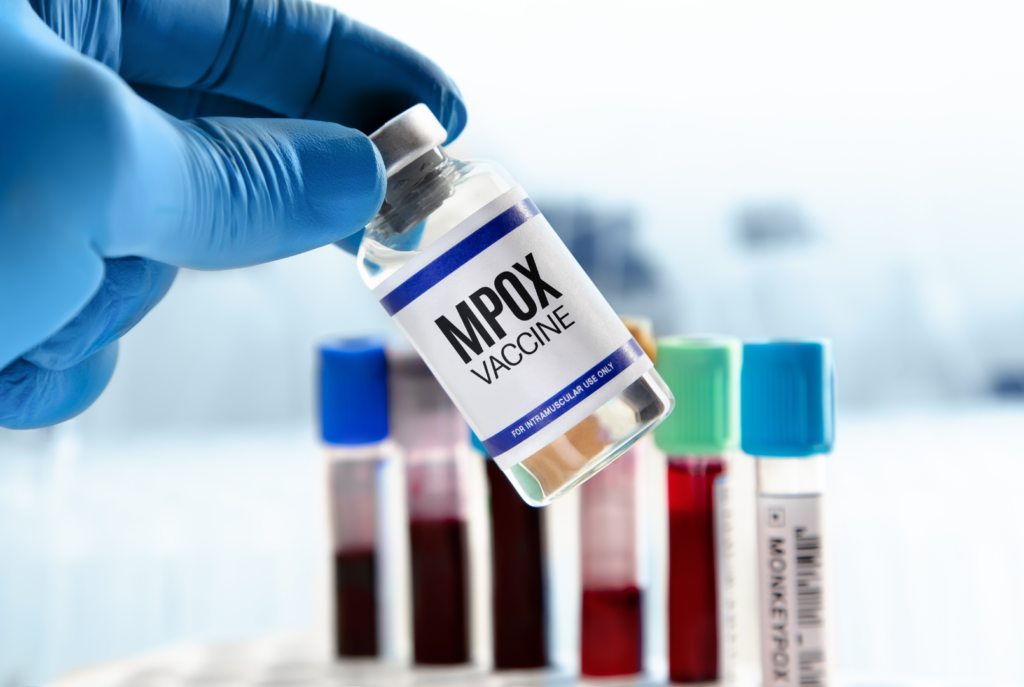
Combating Misinformation
Misinformation about mpox can lead to unnecessary panic and stigma. As a dietitian, it’s important to share reliable, evidence-based information from trusted sources like the World Health Organization (WHO) and local health authorities. Avoid spreading unverified claims, and encourage patients to stay informed through credible channels.
Conclusion
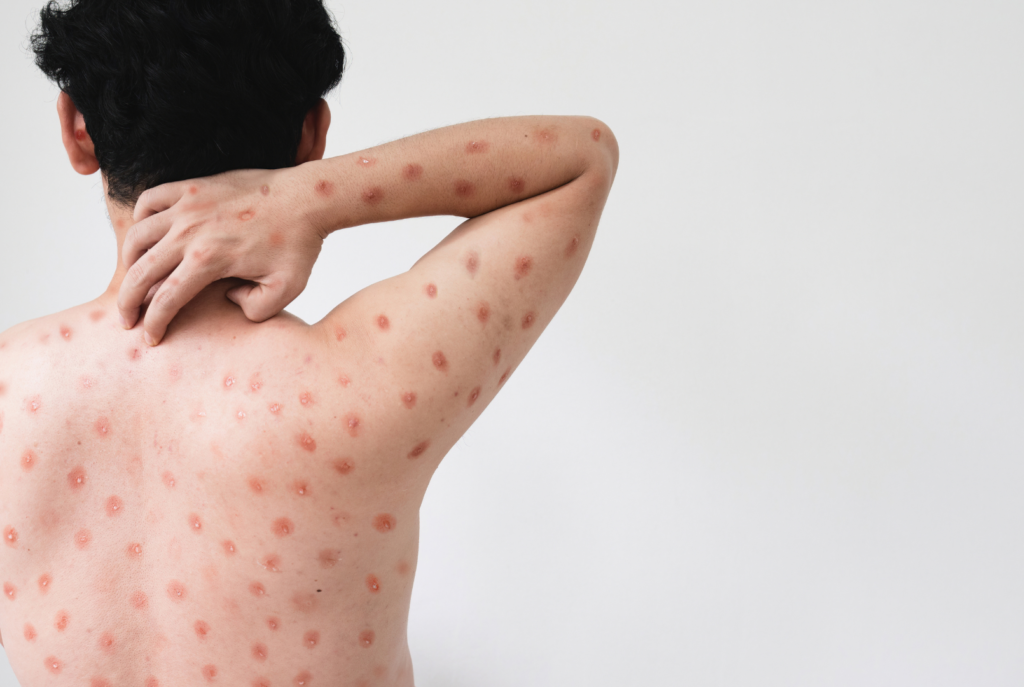
Mpox is a viral illness that can have significant health implications, particularly for vulnerable individuals. While isolation and medical treatment are essential in managing this viral infection, nutrition plays a crucial role in supporting recovery, boosting the immune system and preventing complications. By focusing on a diet rich in vitamins, minerals, antioxidants, and high-quality protein, patients can enhance their body’s ability to heal and fight off infections.
As a dietitian, your guidance on balanced nutrition, hydration and immunity-boosting foods can make a meaningful difference in the recovery process. Encourage patients to prioritize their health, follow proper hygiene practices, and seek medical advice if they suspect they have mpox. Through evidence-based nutrition and preventive measures, we can help reduce the spread of this viral infection and support the well-being of those affected.
Frequently Asked Questions (FAQs)
1. What is mpox?
Mpox, previously referred to as monkeypox, is a viral illness caused by the monkeypox virus (MPXV). It is primarily transmitted through close contact with an infected person or animal, or by touching contaminated materials.
2. What are the symptoms of mpox?
Common symptoms of mpox include a rash, fever, sore throat, headache, muscle aches, back pain, swollen lymph nodes, and fatigue. The rash often progresses into blisters or sores and lasts for 2-4 weeks.
3. How can nutrition help in recovering from mpox?
Good nutrition supports the immune system and aids in faster recovery. Nutrients like vitamin C, vitamin A, zinc, and protein can boost immunity, help repair damaged tissues, and reduce inflammation.
4. What foods should I eat to boost my immune system during mpox?
Focus on nutrient-dense foods like citrus fruits, leafy greens, berries, nuts, seeds, lean meats, fish, and legumes. These foods are rich in vitamins, minerals, antioxidants, and protein that support immune function.
5. Can hydration help manage mpox symptoms?
Yes, staying hydrated is crucial, especially if you have a fever or skin rashes. Drinking plenty of water, herbal teas, and electrolyte-rich fluids helps in maintaining skin health and supports the body’s healing processes.
6. Is it important to consume high-quality protein when recovering from mpox?
Yes, protein is essential for repairing tissue, supporting muscle strength, and producing immune cells. Foods like lean meats, fish, eggs, beans, and tofu are excellent sources of high-quality protein.
7. What role do anti-inflammatory foods play in managing mpox?
Anti-inflammatory foods, such as fatty fish, turmeric, berries, and leafy greens, can help reduce inflammation in the body and support faster healing from the virus.
8. Can mpox be prevented through diet alone?
No, while a healthy diet strengthens the immune system, it cannot prevent mpox. Prevention involves avoiding close contact with infected individuals or animals, practicing good hygiene, and considering vaccination if you are at high risk.
9. Should I get vaccinated against mpox?
Yes, if you are at high risk for exposure to mpox (such as healthcare workers or individuals living in outbreak areas), vaccination is recommended. The mpox vaccine can help prevent infection and reduce the spread of the virus.
10. How can I prevent the spread of mpox in my household?
If you are infected with mpox, self-isolate, avoid sharing personal items, wash your hands frequently, and cover your lesions. Wearing a mask and following your healthcare provider’s guidance will also help minimize the risk of spreading the virus.

🎯 10+ years of Experience
🎓 10k+ Trained ( 📍 Jaipur )
💪 Helping change people’s lives
🌿 Most trusted lifestyle counselor